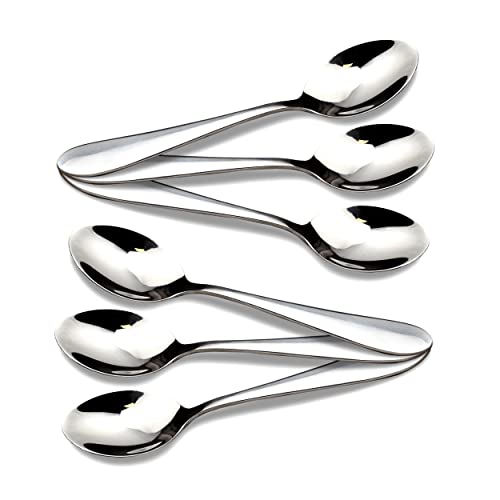The Average Weight of a Teaspoon
Teaspoons are a common measuring tool used in the kitchen for cooking and baking. They are typically used for measuring ingredients such as spices, sugar, and salt. But have you ever wondered about the average weight of a teaspoon? In this article, we will explore the average weight of a teaspoon and why it is important to know.
What Determines the Weight of a Teaspoon?
The weight of a teaspoon can vary depending on the material it is made from. The most common material for teaspoons is stainless steel, which is durable and resistant to corrosion. Stainless steel teaspoons typically weigh between 10 and 20 grams.
However, there are other factors that can affect the weight of a teaspoon. The design of the spoon, including its shape and thickness, can also contribute to its weight. Some teaspoons may have a larger bowl or a thicker handle, which can make them heavier.
It is also important to note that the weight of a teaspoon can vary between manufacturers. Different brands may have slightly different measurements and weights for their teaspoons. If you are looking for an accurate measurement, it is best to use a standardized teaspoon.
Why is the Weight of a Teaspoon Important?
Knowing the weight of a teaspoon can be helpful in various situations. For example, if you are following a recipe that calls for a specific weight of an ingredient, such as salt or sugar, knowing how much your teaspoon weighs can ensure that you are adding the correct amount.
Additionally, if you are watching your calorie or macro intake, knowing the weight of a teaspoon can help you accurately measure and track your food portions. This can be especially useful for ingredients that are high in calories or fats, such as oils or nut butters.
The weight of a teaspoon can also be important in scientific experiments or lab settings where precise measurements are needed. In these cases, a standardized teaspoon with a known weight is often used to ensure accurate results.
How to Measure the Weight of a Teaspoon
If you are curious about the weight of a teaspoon in your kitchen, there are a few methods you can use to measure it. One simple way is to use a kitchen scale. Place an empty teaspoon on the scale and record its weight. Then, fill the teaspoon with a substance of your choice, such as water or flour, and measure the weight again. The difference between the two weights is the weight of the substance in the teaspoon.
Another method is to use a set of calibrated measuring spoons. These spoons are specifically designed to have a standardized weight for each measurement. By using a calibrated teaspoon from a reputable brand, you can be confident in the accuracy of your measurements.
The average weight of a teaspoon can vary depending on factors such as the material it is made from and the design of the spoon. Stainless steel teaspoons typically weigh between 10 and 20 grams. Knowing the weight of a teaspoon can be useful for accurately measuring ingredients in cooking and baking, as well as for tracking food portions for dietary purposes. There are various methods available for measuring the weight of a teaspoon, including using a kitchen scale or a set of calibrated measuring spoons. By knowing the weight of a teaspoon, you can ensure that your measurements are precise and accurate.






